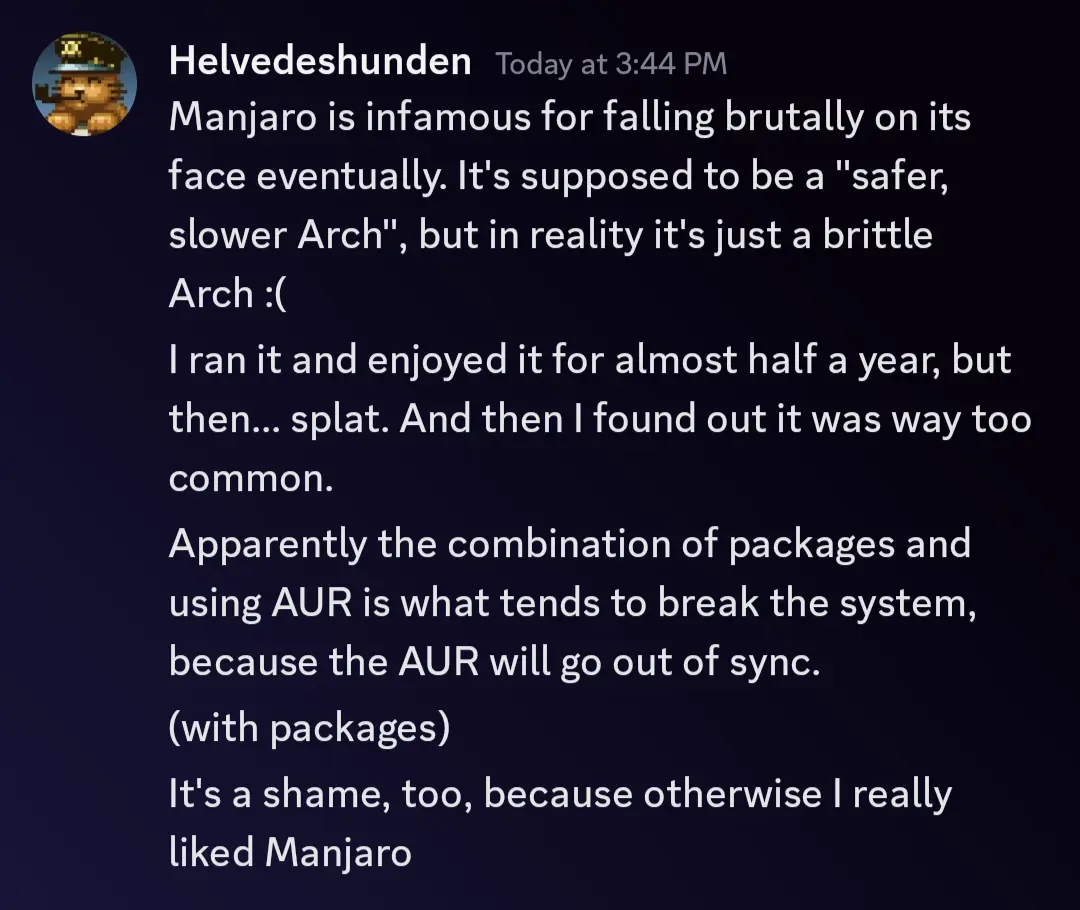this post was submitted on 21 Dec 2023
250 points (94.3% liked)
Linux
52966 readers
485 users here now
From Wikipedia, the free encyclopedia
Linux is a family of open source Unix-like operating systems based on the Linux kernel, an operating system kernel first released on September 17, 1991 by Linus Torvalds. Linux is typically packaged in a Linux distribution (or distro for short).
Distributions include the Linux kernel and supporting system software and libraries, many of which are provided by the GNU Project. Many Linux distributions use the word "Linux" in their name, but the Free Software Foundation uses the name GNU/Linux to emphasize the importance of GNU software, causing some controversy.
Rules
- Posts must be relevant to operating systems running the Linux kernel. GNU/Linux or otherwise.
- No misinformation
- No NSFW content
- No hate speech, bigotry, etc
Related Communities
Community icon by Alpár-Etele Méder, licensed under CC BY 3.0
founded 5 years ago
MODERATORS
you are viewing a single comment's thread
view the rest of the comments
view the rest of the comments

I convinced myself that manjaro is less stable than fedora. But not completely. It depends on the device and what is installed on it.
For some reason, I was able to run Manjaro on my hp laptop without issues for a long time. However my brother on his Lenovo laptop, the manjaro update just killed itself after 2 months. And this always after some months the updater would not work anymore.
I then installed Fedora on his laptop, and damn that thing stayed up and running for 2y now. Even after major system update, never broke, and package install always worked, at least when the tutorials are up to date on special things.
Like installing video codecs, I had to do another command which was not mentioned on the fedora docs, in order to switch from ffmpeg libre to ffmpeg. And then the rest of the install commands would work.